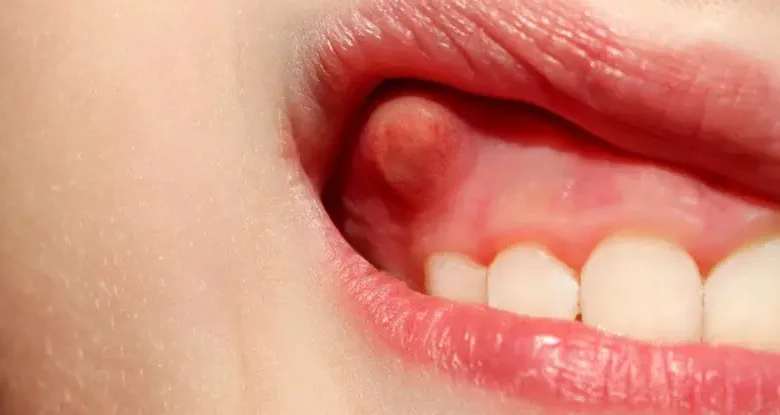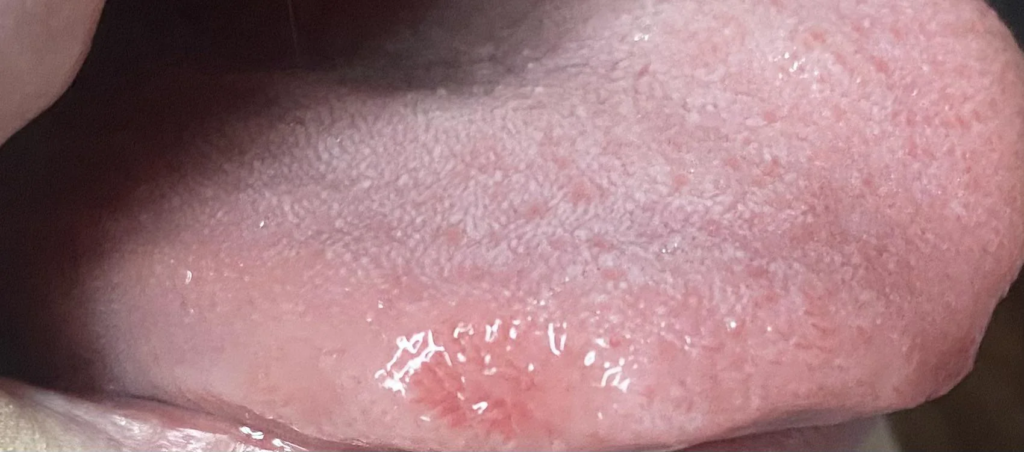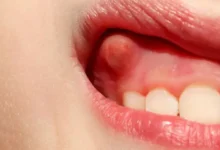Blood Blister on Tongue: Causes, Symptoms, and Best Ways to Heal

A blood blister on tongue can be painful and uncomfortable. It looks like a small bubble filled with dark red or purple blood. This happens when tiny blood vessels under the skin break due to irritation, injury, or other health conditions.
Most of the time, a blood blister on tongue is not serious and goes away on its own. But sometimes, it can make eating or talking difficult. It’s important to know why it happens and how to take care of it properly. In this blog post, we will discuss the causes, symptoms, and best ways to heal a blood blister on the tongue.
What Is a Blood Blister on Tongue
A blood blister on tongue is a small, red or purple bump filled with blood. It forms when tiny blood vessels under the skin break. This can happen because of irritation, injury, or other health problems.
Most of the time, a blood blister on tongue is harmless. It may feel uncomfortable, but it usually heals on its own. Understanding why it happens can help you take better care of your tongue and avoid future blisters.
How Does a Blood Blister on Tongue Look
A blood blister on tongue looks different from a normal blister. It is filled with dark red or purple blood instead of clear fluid. It can appear suddenly and may feel sore or tender.
These blisters usually form on the soft parts of the tongue. You may feel pain when eating, drinking, or talking. It is important not to pop the blister, as this can cause infection or slow healing.
Common Causes of Blood Blisters on Tongue

Blood blisters on the tongue can appear for many reasons. Some causes are minor, while others may need medical attention.
- Biting the tongue: Accidentally biting your tongue can damage blood vessels and cause a blister.
- Eating hot or spicy foods: Hot drinks or spicy foods can burn the tongue and create blisters.
- Allergic reactions: Some foods or medications can cause irritation, leading to blisters.
- Medical conditions: Low platelet count or blood disorders may increase the risk of blisters.
Signs and Symptoms to Watch For
A blood blister on tongue can have different symptoms. While most are harmless, some may need medical attention.
- A raised, dark red or purple bump on the tongue
- Pain or discomfort when eating or talking
- Swelling around the blister
- Blister appearing suddenly without warning
If the blister is very large, keeps coming back, or bleeds a lot, you should see a doctor.
Blood Blister vs. Other Mouth Sores: What’s the Difference?
Mouth sores can look similar, but they are not always the same. It is good to know the difference so you can treat them properly.
- Canker sores: These are small ulcers that are white or yellow, with a red border. They are painful but not filled with blood.
- Fever blisters: These are caused by a virus and usually appear on the lips or inside the mouth. They start with a tingling feeling before turning into blisters.
- Blood blisters: These appear suddenly and are filled with blood. They are not caused by infection or a virus.
When Should You Worry About a Blood Blister on Tongue
Most blood blisters are not dangerous, but sometimes they can be a sign of a bigger problem.
- If the blister does not heal in 10-14 days
- If it keeps coming back often
- If it bleeds a lot or gets bigger
- If you have other symptoms like fever or swollen lymph nodes
Seeing a doctor can help you find out if there is an underlying health issue.
Best Home Remedies to Soothe a Blood Blister on Tongue

There are simple home remedies that can help reduce pain and speed up healing.
- Apply ice: Hold ice on the blister for a few minutes to reduce swelling.
- Rinse with salt water: This can help clean the area and prevent infection.
- Avoid spicy or hot foods: These can make the blister worse.
- Drink cold water: This soothes the tongue and reduces discomfort.
What Foods to Avoid When You Have a Blood Blister?
Eating the wrong foods can make the blister worse and delay healing. Avoid these foods:
- Hot drinks and spicy foods – They can irritate the blister.
- Crunchy or hard foods – Chips, toast, or nuts can scrape the blister.
- Citrus fruits and acidic foods – Oranges, lemons, and tomatoes can sting the blister.
- Salty snacks – These can dry out the tongue and cause more pain.
Medical Treatments for Blood Blisters on Tongue
Most blood blisters heal on their own, but sometimes medical treatment is needed.
- Prescription mouthwashes: These help keep the blister clean and prevent infection.
- Pain relievers: Over-the-counter medicines can reduce discomfort.
- Doctor’s advice: If the blister is not healing, a doctor may check for other health issues.
How to Prevent Blood Blisters on Tongue in the Future
You can prevent blood blisters by taking care of your mouth.
- Eat slowly: This helps prevent biting your tongue.
- Choose soft foods: Soft foods are less likely to cause injury.
- Avoid irritants: Stay away from spicy, hot, or acidic foods.
- Keep good oral hygiene: Brush and floss daily to keep your mouth healthy.
Is a Blood Blister on Tongue a Sign of a Health Problem

Most of the time, a blood blister on tongue is harmless. But in some cases, it can be linked to other health conditions.
Possible health concerns:
- Blood disorders: Low platelet count can cause frequent blood blisters.
- Allergic reactions: Certain foods or medications can trigger blisters.
- Mouth infections: Some infections can cause painful sores, including blood blisters.
If you get blood blisters often, it is best to talk to a doctor to find out the cause.
Final Thoughts: Healing and Prevention Tips
Blood blisters on the tongue can be annoying, but they usually go away on their own. Simple home care and avoiding irritants can help them heal faster.
If the blister does not go away or keeps coming back, it may be a sign of a bigger problem. Seeing a doctor can help you understand what’s causing it and find the best treatment. Taking good care of your mouth can prevent blood blisters and keep your tongue healthy.
FAQs
Q: How long does a blood blister on tongue take to heal?
A: Most blood blisters heal in 7-14 days without treatment. Keeping the area clean can help it heal faster.
Q: Can I pop a blood blister on tongue?
A: No, popping the blister can cause infection and slow healing. It is best to let it heal on its own.
Q: What foods should I avoid with a blood blister on tongue?
A: Avoid hot, spicy, crunchy, and acidic foods, as they can irritate the blister and delay healing.
